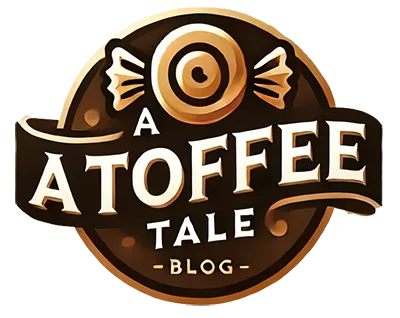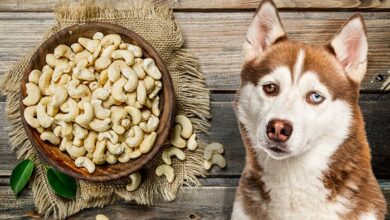Can Dogs Eat String Cheese Safely? The Facts You Need to Know in 2024

Can Dogs Eat String Cheese? Yes, string cheese is generally safe for dogs in small quantities. Many dog owners use it as an occasional treat, and dogs often enjoy its delicious taste and fun texture. However, it’s important to remember that string cheese shouldn’t become a regular part of their diet.
If your dog has lactose intolerance or a sensitive stomach, it’s best to avoid giving them string cheese altogether. Always keep an eye on how your pup reacts after trying new foods, and consult your veterinarian if you have any concerns. Let’s take a closer look at the benefits and risks of feeding string cheese to your furry friend! So let’s join us as we will explore that- can dogs eat String Cheese?
Benefits of Feeding String Cheese to Dogs
Can Dogs Eat String Cheese? Yes, string cheese can offer some benefits when fed in moderation. It’s important to understand these advantages to ensure you make the best choices for your furry friend. Here are some key benefits of feeding string cheese to dogs:
High in Protein:
- String cheese is rich in protein, which is essential for your dog’s muscle growth and repair. Protein helps maintain strong muscles and supports overall health.
- Including protein-rich snacks like string cheese in your dog’s diet can be particularly beneficial for active dogs or those recovering from illness or injury.
Contains Calcium:
- String cheese provides a good source of calcium, which is vital for healthy bones and teeth. Calcium supports strong skeletal structure and dental health, reducing the risk of future problems.
- This nutrient is especially important for growing puppies, pregnant or nursing dogs, and older dogs that may need extra support for their bones.
Great for Training:
- The tasty and easy-to-handle texture of string cheese makes it an excellent training treat. Dogs often find it irresistible, which can motivate them to learn new commands or tricks.
- Cutting string cheese into small pieces allows you to reward your dog frequently without overdoing it. This can enhance their training experience and strengthen the bond between you and your pet.
Can dogs eat string cheese? Yes, and it can offer valuable benefits such as high protein content, calcium for bone health, and effectiveness as a training treat. However, always remember to offer string cheese in moderation and monitor your dog’s reaction to ensure it fits well within their dietary needs. Enjoy treating your furry friend while also keeping their health in mind!
Risks of Giving String Cheese to Dogs-Can Dogs Eat String Cheese
Can Dogs Eat String Cheese? While string cheese can have some appealing benefits, it’s essential to be aware of the potential risks before sharing this snack with your dog. Understanding these risks will help you make informed decisions about your dog’s diet.
High in Fat:
- String cheese is often high in fat, which can contribute to weight gain if fed too frequently. Obesity in dogs can lead to numerous health issues, including diabetes and joint problems.
- Overfeeding high-fat treats like string cheese can also increase the risk of pancreatitis, a serious condition that causes inflammation of the pancreas and can require veterinary treatment.
Lactose Sensitivity:
- Many dogs are lactose intolerant, meaning they have difficulty digesting lactose, a sugar found in dairy products. For these dogs, consuming string cheese can lead to gastrointestinal upset.
- Symptoms of lactose intolerance may include bloating, gas, diarrhea, or even vomiting. Always observe your dog for any adverse reactions after introducing new foods.
Added Salt and Preservatives:
- Processed cheeses like string cheese can contain added salt and preservatives, which are not ideal for dogs. Excessive salt intake can lead to serious health issues, including sodium ion poisoning.
- Always check ingredient labels for any harmful additives and consider opting for lower-sodium options if you decide to treat your dog to string cheese.
While can dogs eat string cheese is a question that leans towards a “yes,” it’s crucial to be mindful of the risks involved. High fat content, lactose sensitivity, and added salt can all pose challenges for your dog’s health. Moderation is key, and always pay attention to how your dog responds to any new threats to ensure they stay happy and healthy.
How to Feed String Cheese to Your Dog Safely
Can Dogs Eat String Cheese? If you’re considering treating your dog with string cheese, it’s essential to know how to do so safely. Feeding string cheese to your furry friend can be a delightful experience, but taking the right precautions is key to keeping them healthy and happy.
Cut into Small Pieces:
- Always slice the string cheese into small, bite-sized pieces. This step helps prevent choking, especially in smaller dogs or those who tend to gulp their food. Smaller pieces are easier for dogs to chew and digest.
Limit Serving Size:
- Keep the servings small, particularly for smaller breeds. String cheese should only be an occasional treat and not a regular part of their diet. A good rule of thumb is to offer just one or two small bites at a time to avoid overfeeding.
Monitor for Adverse Reactions:
- After feeding your dog string cheese, watch for any signs of digestive upset. Symptoms such as diarrhea, vomiting, or excessive gas may indicate lactose intolerance or sensitivity. If any adverse reactions occur, discontinue offering string cheese and consult your veterinarian for guidance.
Can dogs eat string cheese is a treat that many dogs can enjoy when served correctly. By cutting the cheese into small pieces, limiting portion sizes, and monitoring for any negative reactions, you can safely incorporate string cheese into your dog’s snack rotation. Always prioritize your dog’s health and well-being while treating them to delicious snacks!
Recognizing Signs of Lactose Intolerance in Dogs
Can Dogs Eat String Cheese? Understanding your dog’s digestive health is crucial, especially when introducing new foods like string cheese. While many dogs enjoy the taste, some may struggle with lactose intolerance, leading to discomfort and digestive issues.
Common Symptoms-Can Dogs Eat String Cheese?
- After consuming dairy products like string cheese, keep an eye out for signs such as bloating, gas, diarrhea, and general stomach upset. These symptoms indicate that your dog’s digestive system may not handle lactose well.
Behavioral Changes:
- Dogs may exhibit discomfort or restlessness after eating dairy. Look for signs such as pacing, whining, or an unwillingness to settle down. These behaviors can signal that your dog is feeling unwell.
Consult Your Vet:
- If your dog shows persistent symptoms after eating string cheese or other dairy products, it’s best to avoid dairy altogether. Consult your veterinarian for personalized advice on your dog’s dietary needs and to rule out any underlying health issues.
While can dogs eat string cheese can be a tasty treat for many, it’s essential to be vigilant about your dog’s reaction. Recognizing the signs of lactose intolerance can help ensure your furry friend enjoys their snacks without discomfort. Always prioritize your dog’s health by paying attention to their body’s signals and seeking veterinary advice when needed.
Healthier Snack Alternatives to String Cheese
Can Dogs Eat String Cheese? While string cheese can be a delightful snack for dogs, it’s wise to explore healthier alternatives to ensure your pup enjoys a balanced diet. Offering variety not only satisfies their taste buds but also helps meet their nutritional needs.
Low-Fat, Lactose-Free Cheese Options:
- Consider low-fat or lactose-free cheese alternatives. These options reduce the risk of digestive upset for dogs with lactose intolerance while still providing a tasty treat.
Fresh Fruits and Vegetables:
- Fresh produce can be a great addition to your dog’s diet. Safe options like apples (without seeds), carrots, and cucumbers offer hydration and essential vitamins. They’re crunchy and enjoyable, making them excellent snack choices.
Lean Protein Sources:
- Lean meats, such as boiled chicken or turkey, serve as high-protein snacks. These options support muscle health and provide energy without the high fat content of processed cheese. Cut them into small, manageable pieces for your dog to enjoy.
Conclusion
In summary, while can dogs eat string cheese is an option, there are plenty of healthier snacks that you can offer. By incorporating low-fat cheese alternatives, fresh fruits and veggies, and lean protein, you can ensure your dog gets a variety of nutrients while keeping snack time exciting. Always remember to introduce new foods gradually and consult your vet if you have any concerns about your dog’s diet.




